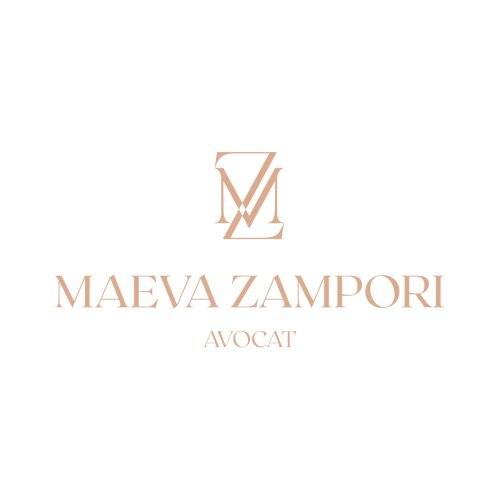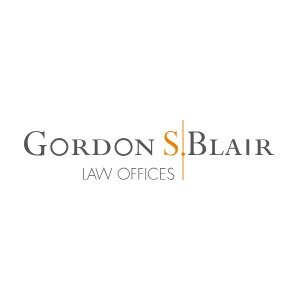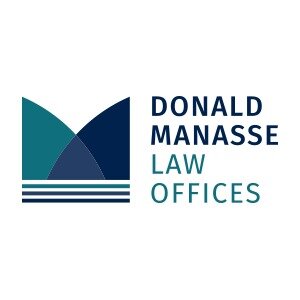Best Conveyancing Lawyers in Monaco
Share your needs with us, get contacted by law firms.
Free. Takes 2 min.
Free Guide to Hiring a Real Estate Lawyer
Or refine your search by selecting a city:
List of the best lawyers in Monaco
About Conveyancing Law in Monaco
Conveyancing in Monaco refers to the legal process of transferring property ownership from one party to another. Given Monaco's unique legal environment, property transactions here are subject to a combination of local statutes and civil law traditions, influenced by the Napoleonic Code. The process involves a series of steps designed to protect the interests of both the buyer and the seller, with a strong emphasis on thorough documentation and legal compliance. All transactions must be authenticated by a notary, who plays a central role in the conveyancing process in Monaco.
Why You May Need a Lawyer
Seeking legal advice when dealing with conveyancing in Monaco is highly recommended for several reasons. Property transactions are complex and require strict adherence to specific legal procedures. A lawyer can assist in situations such as:
- Purchasing or selling residential or commercial property
- Transferring property due to inheritance or divorce
- Conducting due diligence on a property's legal status and title
- Drafting or reviewing sale-purchase agreements
- Assisting non-residents with regulatory compliance
- Resolving disputes relating to boundary, ownership, or title
- Advising on taxation and associated costs
Legal professionals ensure that your interests are protected, help you avoid costly errors, and navigate the complexities of local laws.
Local Laws Overview
Property transactions in Monaco are governed by a mix of Monegasque laws and civil law principles. Key aspects include:
- Mandatory use of a Monegasque notary to authenticate property transfers
- Detailed due diligence on the property's legal status, including title verification and absence of encumbrances or liens
- Foreign nationals may purchase property without specific restrictions, but must comply with residency and anti-money laundering rules
- Standard contracts and pre-sale agreements are commonly used to set out terms before formal notarization
- Transfer taxes and notary fees apply and are usually paid by the buyer
- Mortgage registration and financing are subject to local regulatory oversight
- Strict compliance with official registration procedures with the Monaco Administration
Understanding these local regulations is crucial to ensure a smooth and secure property transaction in Monaco.
Frequently Asked Questions
What is the role of the notary in property transactions?
The notary acts as a public officer who authenticates property sales and ensures legal compliance, protects the interests of all parties, and registers the transfer with the relevant authorities.
Can foreigners buy property in Monaco?
Yes, there are no legal restrictions on foreign nationals purchasing property in Monaco, although compliance with residency and anti-money laundering regulations is required.
How long does the conveyancing process take in Monaco?
Typically, the process can take between one to three months, depending on the complexity of the transaction and the completion of due diligence checks.
What taxes and fees are involved in property purchases?
Buyers are usually responsible for transfer taxes, notary fees, and administrative fees, which commonly range from 6 percent to 7 percent of the purchase price.
Do I need to be present in Monaco to complete a property transaction?
Physical presence is not always required; buyers can grant power of attorney to a representative or lawyer to act on their behalf.
Is a preliminary contract necessary?
Yes, it is standard practice to sign a preliminary contract, which sets out the main terms and conditions before proceeding to final notarization.
Are there any restrictions on selling property?
Property can generally be sold freely, but owners must ensure compliance with all contractual obligations and local laws during the sale process.
How is property title verified?
The notary is responsible for conducting all relevant checks to ensure clear and undisputed title before the sale is finalized.
Can I obtain financing or a mortgage in Monaco?
Yes, several banks and financial institutions operate in Monaco and offer mortgages to residents and non-residents, subject to their own lending criteria and regulatory compliance.
What happens if there is a dispute after the transaction?
Legal disputes are handled by the Monegasque courts. Engaging a lawyer experienced in real estate can help resolve issues related to title defects, contractual breaches, or boundary disputes.
Additional Resources
For further information and assistance regarding conveyancing in Monaco, the following resources can be helpful:
- Monaco Chamber of Notaries - official body overseeing notaries and property transactions
- Direction de l'Expansion Économique (Economic Expansion Directorate) - for administrative and business-related queries
- Order of Lawyers (Ordre des Avocats Défenseurs et Avocats de Monaco) - professional association for legal practitioners
- Monaco Government official portal - provides guides and regulatory updates on property law
- Real estate agencies with legal departments specializing in Monaco property
Next Steps
If you are considering buying or selling real estate in Monaco, it is important to seek professional legal advice to protect your interests and ensure that your transaction complies with local laws. Here is how you can proceed:
- Identify and engage a qualified lawyer or notary with experience in Monaco conveyancing
- Gather all relevant documentation relating to the property and your personal identification
- Arrange for a preliminary consultation to discuss your specific needs and objectives
- Clarify legal fees and estimated costs before proceeding with any transaction
- Ensure all agreements and powers of attorney are properly drafted and executed
- Maintain clear communication with all parties involved throughout the conveyancing process
Taking these steps will help ensure a clear, efficient, and legally compliant experience when dealing with property transactions in Monaco.
Lawzana helps you find the best lawyers and law firms in Monaco through a curated and pre-screened list of qualified legal professionals. Our platform offers rankings and detailed profiles of attorneys and law firms, allowing you to compare based on practice areas, including Conveyancing, experience, and client feedback.
Each profile includes a description of the firm's areas of practice, client reviews, team members and partners, year of establishment, spoken languages, office locations, contact information, social media presence, and any published articles or resources. Most firms on our platform speak English and are experienced in both local and international legal matters.
Get a quote from top-rated law firms in Monaco — quickly, securely, and without unnecessary hassle.
Disclaimer:
The information provided on this page is for general informational purposes only and does not constitute legal advice. While we strive to ensure the accuracy and relevance of the content, legal information may change over time, and interpretations of the law can vary. You should always consult with a qualified legal professional for advice specific to your situation.
We disclaim all liability for actions taken or not taken based on the content of this page. If you believe any information is incorrect or outdated, please contact us, and we will review and update it where appropriate.
Browse conveyancing law firms by city in Monaco
Refine your search by selecting a city.














